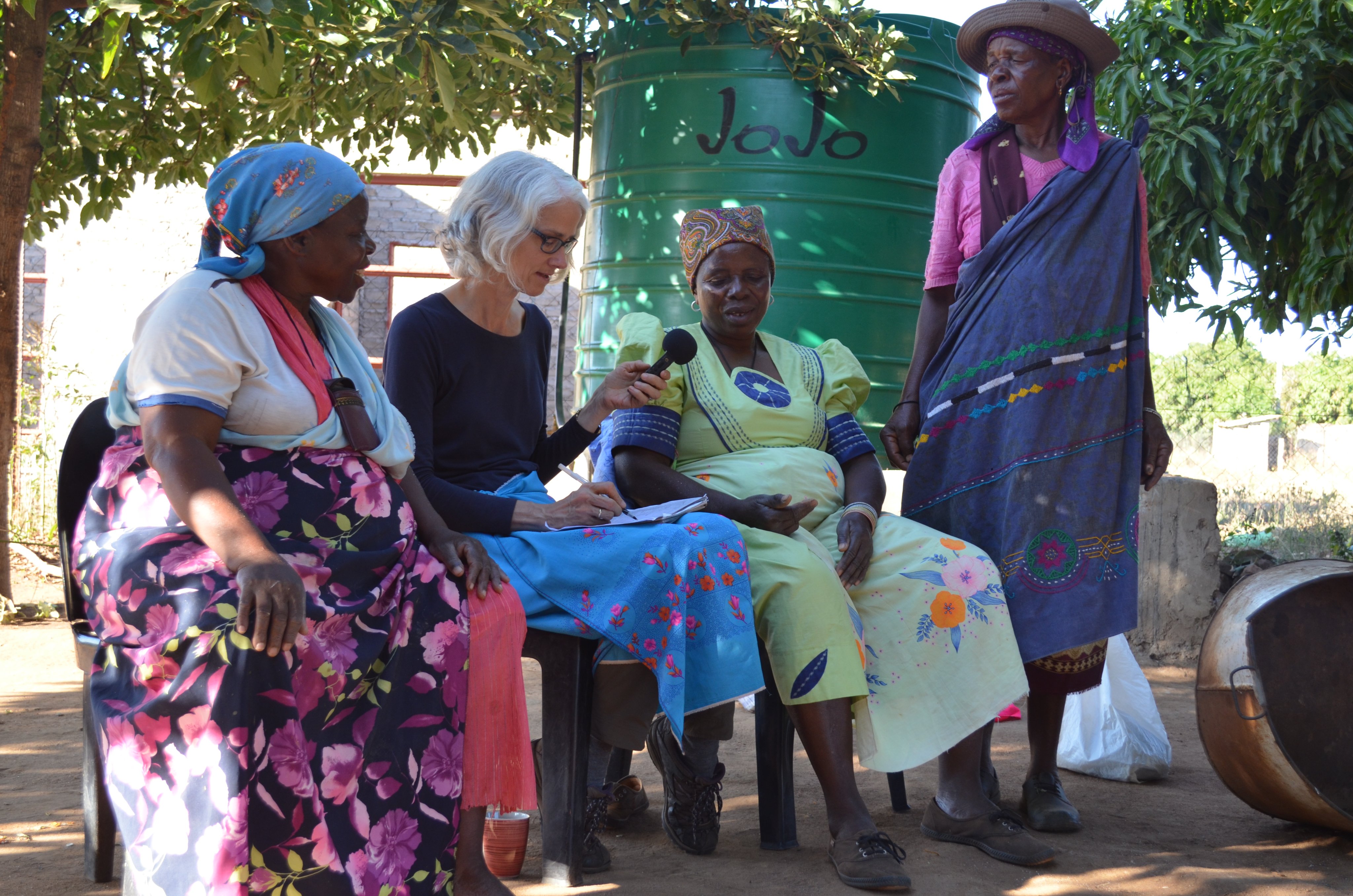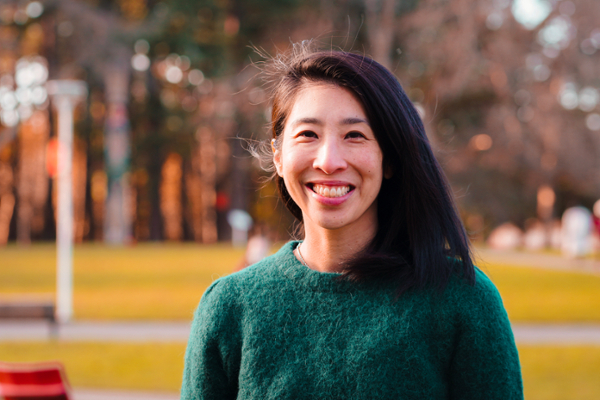International Women's Day 2022
Today, on International Women’s Day, we explicitly recognize the many remarkable women in our Faculty and at #UVic who work daily to #breakthebias against women across the globe and forge a path toward a more just, sustainable future.
In honour of all the stories that aren’t being told, we share with you the work of five women from our faculty whose teaching and research inspires, provokes, engages and enriches those around them.
Elizabeth Vibert

The women farmers I work with in rural South Africa live and thrive in the face of, and daily resist, deep biases of race and gender. They live in a country just a couple of decades free of violent, institutionalized racial exclusion. They live the legacies of multiple forms of colonialism and the contemporary challenges of neoliberalism, climate crisis, and gender-based violence. In spite of these burdens they work every day to create dignified livelihoods for themselves and decent lives for their children and grandchildren. They work every day to #breakthebias against women and girls.
— Elizabeth Vibert, Associate Professor, History.
Angie Chau

My teaching and research helps #breakthebias against Chinese women by examining the ways they have been represented and represent themselves in film, literature and visual culture since the early 20th century. A project I’m working on with sociologist Qian Liu (U.Calgary) for example focuses on so-called “leftover women” — young single women in China who are often depicted in documentary films as marginalized figures among a society of culturally backward and brainwashed community members. Recognizing historical continuities among such representations shows how stereotypes and misogyny persist, but also celebrates the artistic achievements of creative women.— Angie Chau, Assistant Professor, Pacific and Asian Studies.
Marina Bettaglio
My research helps #breakthebias by challenging patriarchal representations of motherhood and reproduction. For example, my SSHRC-Funded project “Maternal Self-Expression in Spanish Graphic Narratives: Beyond Patriarchy and Neoliberalism?” (2020-2025) examines the way maternal narratives respond to patriarchal, neoliberal notions of “proper” maternal conduct. Images of motherhood are powerful ideological tools that have shaped women’s identity throughout history. Through collaborative projects like this one, my work explores forms of self-representation that challenge the androcentric gaze.
— Marina Bettaglio, Associate Professor, Hispanic & Italian Studies.
Lynne Marks

My current research helps #breakthebias by exploring how Indigenous, immigrant, racialized and low-income women activists across Canada from the 1960s to the 1980s organized to challenge racism, sexism and other systemic barriers that they faced, and thus sought to improve their lives and those of their families and communities. Working with two co-investigators at U.Alberta and Queen’s U., our SSHRC-funded Alternative Visions project analyzes the ways in which these activist groups may have had different perspectives on motherhood/family and questions of religion/irreligion from the mainstream second wave women's movement, and how this related to their activist demands and political practice.— Lynne Marks, Professor, History.
Beatriz de Alba-Koch
My research on poet and playwright Sor Juana Inés de la Cruz (San Miguel Nepantla, 1648 - Mexico City, 1695) helps #breakthebias against early modern cloistered women in the Hispanic world. A major figure of the Baroque period, Sor Juana’s publications gained fame in her lifetime, but she was eventually silenced by the Church. Her denunciation of sexism and her proposals for the education of women are notable for her time, and still relevant for our own.
— Beatriz de Alba-Koch, Associate Professor, History. Director, Latin American Studies.
Article by Philip Cox
Photos & video by Katrianna Skulsky
Special thanks to Beatriz de Alba-Koch, Marina Bettaglio, Angie Chau, Lynne Marks and Elizabeth Vibert.
